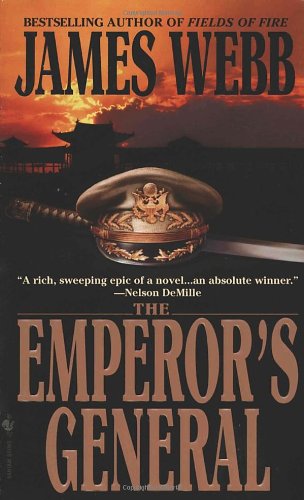Books
The Emperor’s General (1999)
Herein one of the most powerful themes in literature: Why did a great man destroy a great man?
The Emperor’s General tells not only the story of post-war Japan, but how and why General Douglas MacArthur manipulated a kangaroo court into hanging General Tomoyuki Yamashita, Japan’s greatest battlefield leader. Yamashita, the famed “Tiger of Malaya” who smashed the British in Singapore and whm MacArthur never fully defeated in the war’s final campaign for the Philippines, was convicted by a court controlled by MacArthur on December 7, 1945, the anniversary of the Japanese attack on Pearl Harbor, based on fraudulent charges that he was a war criminal. While telling this story, along the way the book is also a dramatic human tale of the loss of innocence and the seduction of power and about the conflict between honor, duty, and love, all set against an extraordinary historical backdrop.
Reviews
Publishers Weekly: “The collision of love, war and power is explored through the unflinching eyes of Gen. Douglas MacArthur’s trusted aide-de-camp in Webb’s (Fields of Fire) powerfully compelling and moving new novel. Fighting the Japanese for control of the Philippines during the final months of WWII, the general reveals his military genius and broken heart as he posts his army on the island of Leyte, home of his long-lost lover, Consuelo Trani. Capt. Jay Marsh, MacArthur’s 23-year-old aide-de-camp, fluent in Japanese, becomes an envoy to prisoners and to the general’s officers, finding his own romance when he meets beautiful Divina Clara. But their marriage is postponed when the atom bomb ends the war, and the Japanese emperor’s adviser, Kido, selects Marsh as his conduit in Japan, using him in a complicated plot to protect the emperor and to gain access to MacArthur’s strategies. Kido plies Marsh with the favors of a geisha, with whom Marsh embarks on a politically and romantically deceitful entanglement. Meanwhile, MacArthur avenges atrocities in Manila by rigging General Yamashita’s trial for war crimes, which plays into the hands of the Japanese royal family; subsequently, he succumbs to a series of labyrinthine alliances and conspiracies that display his weaknesses and complexities.
“This is historical fiction of a high order. Webb fuses fact and fictional experience through hypnotic storytelling, giving a human face to the victims of war, including its criminals, strategists, heroes and lovers. Towering above them all is the mesmerizing figure of MacArthur, a flawed titan made palpable by Webb, whose appraisal of human nature here proves as vigorous and exemplary as his narrative prowess.”
Kirkus Reviews: “A worm’s-eye fable of how Machiavellian General Douglas MacArthur, having won the war in the Pacific, goes on to wage peace against his subtle former adversaries. … Webb (Something to Die For, 1991, etc.) makes winning the Japanese peace look every bit as challenging and tragic as winning the war.
The Baltimore Sun: “Webb has the inside knowledge of military life to make this epic story come alive … The lessons of war and peace that emerge from this novel are timely, and should make it required reading.”
The Hartford Courant: “A seamless tapestry of history and fiction… a truly enthralling work.”
Stars and Stripes: “If you miss this novel, you’ve whisked past an insight into history in Webb’s giving flesh and substance to the skeletons of myth and suspicion.”
Author comments:
“A rich, sweeping epic of a novel…an absolute winner.”
–Nelson DeMille
“This compelling, fascinating exercise of historical fiction proves, again, that Jim Webb is as fine a novelist as he was a Marine. Enough said.”
–George F. Will
“James Webb offers it all…a page-turning tour de force that examines our morality and makes us question what we ourselves would have done.”
–Nicholas Sparks, author of The Notebook and Message in a Bottle

